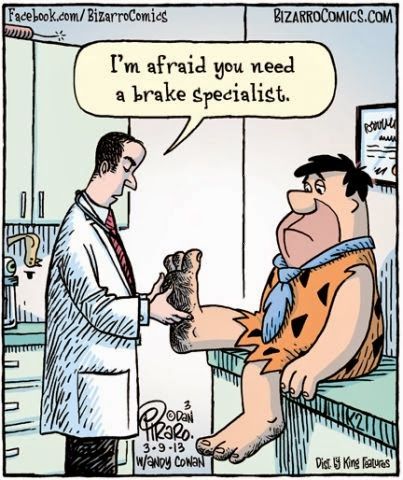
Believe me, you do not want this condition, not under any circumstances at any time. It is agony, agony to get out of bed in the morning, to walk, to run, to cook dinner at the end of the working day, to enjoy a day on the beach with the children.
If you don’t mind hobbling around like a very old person walking on broken glass, then ignore what I say. But if you have a job where you stand most of the time, especially in high heels, or if you spend long hours walking on hard pavements in soft ill-fitting shoes or if you are a jogger or athlete who allows his or her running shoes to wear out then take heed. Plantar fasciitis is absolute hell.
So what is the first symptom of this painful foot problem? You happily carry on with your usual activities until one day your heel feels very sore. Or maybe it is the ball of your foot. (or both of them – woe betide you if you get it in both feet at once). You notice the pain is very bad when getting out of bed. If you walk any distance the pain gets worse and soon it is the sole of your foot that hurts and sends stabbing shooting pains up your leg. If you have flat feet or fallen arches you might be tempted to blame these. You might even wonder if the bunion you inherited from your mother is the cause but don’t be fooled.
Now is the time to take measures to prevent the condition worsening because if the offending ligament in the sole of your foot weakens and tears you are in big trouble. At the moment you merely have inflammation, which is bad enough, as a result of overdoing the wear and tear on your poor tootsies. To begin with I would suggest resting with your feet up as much as possible. Scour the internet for some well made supportive shoes and junk the worn ones. If standing for long periods try a rubber mat to relieve the stress and spend a few moments before you get out of bed in the morning massaging the Achilles tendon above your ankles and stretching your feet forward and back.
You may have to give up the jogging or at least alternate your running with other sports. Stretch your Achilles tendon before exercise and lose some weight if you pound round the track like an elephant. If all this advice fails and the agony becomes more intense you will give up smiling and consider going to the doctor.
First though, you might try some of those insoles that are designed to support the feet. Then look for some simple exercises on the web, like rolling the foot backwards and forwards on a tin can or a bottle of water. Your family will wonder what you are up to but hey, they don’t have the pain. Any stretching exercise would be good too, with a long stretchy length of material like a towel. The stretching will loosen the tight ligament. Even pulling your foot forward with your hands will help.
These are things you can do yourself but if you are unlucky enough to need the advice of a doctor your interview might go in several ways. He will diagnose the problem and begin by recommending all the measures described above. In a few months, depending on your determination to persist with the exercises the inflammation will subside, the tears will heal and you will be free of the pain.
On the other hand, if you are elderly, he may tell you that growing older inevitably brings a few aches and pains, that you probably have a touch of arthritis and you should take more exercise. He might conclude his nine and a half minutes with you by writing a prescription for painkillers. If this happens you must visit the surgery again and practice your assertion skills because every older person deserves to sail into their declining years as fit as they can possibly be without the curse of chronic pain if it can be avoided. And that is what you will get if plantar fasciitis is left untreated for long years.
Let me tell you of a friend of mine. She is in her seventies and has had foot problems for many years, assuming the pain to be part of growing old. She can no longer enjoy a morning window-shopping in the town. She can drive but must not park too far from her destination because the walk is difficult. She stays mostly at home as going anywhere has become problematic. The rest of her is in pretty good shape but she’s philosophical and accepts what her doctor tells her.
It’s probably too late now. It is likely the ligaments and muscles in her feet and ankles have become stiff and tight with multiple small tears and there probably is some arthritis too. Had she been aware in those early years and taken good advice, even nagged her doctor, she might have been tripping around like a teenager now.